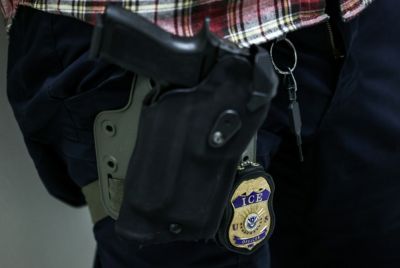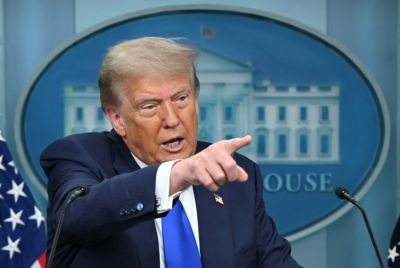Posse Comitatus Act: What It Means and Why Judge Breyer Struck Down Trump's National Guard Deployment
A federal judge cited the 19th-century Posse Comitatus Act in ruling Donald Trump's Los Angeles troop deployment unlawful, raising fresh debate about presidential power and military limits in civilian law enforcement.

The Posse Comitatus Act, a 19th-century law that prohibits the use of the military in civilian law enforcement, was at the centre of a landmark ruling on Tuesday as a federal judge struck down Donald Trump's deployment of National Guard troops and Marines in Los Angeles.
Judge Charles Breyer of the Northern District of California said the operation crossed a constitutional line, reigniting debate over the scope of presidential power and the modern relevance of a statute written nearly 150 years ago.
What Is the Posse Comitatus Act?
Enacted in 1878 during the post-Civil War era, the Posse Comitatus Act was designed to limit federal military involvement in domestic affairs. The law aimed to strengthen civilian authority over policing and prevent federal troops from enforcing local or state laws.
Initially, the Act applied only to the Army, but its scope was later extended to the Air Force, Navy, Marines, and Space Force. Its central principle is that federal armed forces should not carry out law enforcement functions inside the United States without specific legal authorisation.
Text and Definition of the Act
The Posse Comitatus Act is codified in Title 18, U.S. Code § 1385. The text makes it a criminal offence to use the Army or Air Force to execute domestic laws unless expressly authorised by the Constitution or an Act of Congress.
The legal definition is straightforward: the Act prohibits federal troops from performing activities such as arrests, searches, seizures, crowd control, or riot suppression.
Exceptions exist, most notably under the Insurrection Act of 1807, which permits the President to deploy military forces if rebellion, insurrection, or an inability of local authorities to maintain order is evident.
National Guard and Legal Status
The National Guard operates under two distinct authorities. When under state control, often referred to as Title 32 status, the Guard is not bound by the Posse Comitatus Act. Governors may deploy Guard units to assist with emergencies, natural disasters, or local security.
However, when federalised under Title 10 authority, the National Guard becomes subject to the same restrictions as other military branches.
In the Los Angeles deployment, Guard troops were federalised and engaged in crowd control and traffic enforcement, which the court ruled violated the Act.
Judge Charles Breyer's Ruling
Judge Charles Breyer ruled that the deployment of approximately 4,000 National Guard troops and 700 Marines to Los Angeles earlier this year exceeded presidential authority under the Posse Comitatus Act.
The court found that military personnel carried out law enforcement activities such as setting up perimeters, directing traffic, and participating in arrests. Breyer emphasised that no rebellion or insurrection was taking place, which meant the Insurrection Act exception could not be invoked.
The injunction prohibits federal military forces from engaging in law enforcement operations in California, although enforcement of the order has been stayed until 12 September to allow the administration time to appeal.
Political and Legal Reactions
California Governor Gavin Newsom and Attorney General Rob Bonta welcomed the ruling, calling it a vital safeguard of democratic principles. Bonta said, 'Today's ruling affirms that President Trump is not King, and the power of the executive is not boundless.'
The Trump administration criticised the decision, describing Judge Breyer as a 'rogue' jurist and confirming plans to appeal. The White House maintained that the deployment was necessary to protect public safety, despite the court's findings.
'Once again, a rogue judge is trying to usurp the authority of the commander-in-chief to protect American cities from violence and destruction. President Trump saved Los Angeles, which was overrun by deranged leftist lunatics sowing mass chaos until he stepped in,' White House Spokesperson Anna Kelly was quoted by CBS Newsas saying.
The ruling also raised national implications, with observers noting that it could restrict similar plans to deploy troops in other cities, including Chicago, New York, and Oakland.
Why the Case Matters Nationally
The case, filed as Newsom v. Trump, is expected to set an important precedent in how the Posse Comitatus Act is interpreted in modern contexts. Legal analysts note that it reinforces the boundaries between civilian law enforcement and military authority, a principle that has defined the Act since its inception.
The dispute is now moving through the appeals process, and legal experts suggest the issue may ultimately reach the Supreme Court, given its constitutional significance and the high stakes for future presidential authority.
If the ruling against Trump is upheld, it would not carry personal criminal penalties but would sharply restrict his ability to use federal troops for law enforcement and weaken the executive branch's claims of broad domestic security powers.
© Copyright IBTimes 2025. All rights reserved.




















